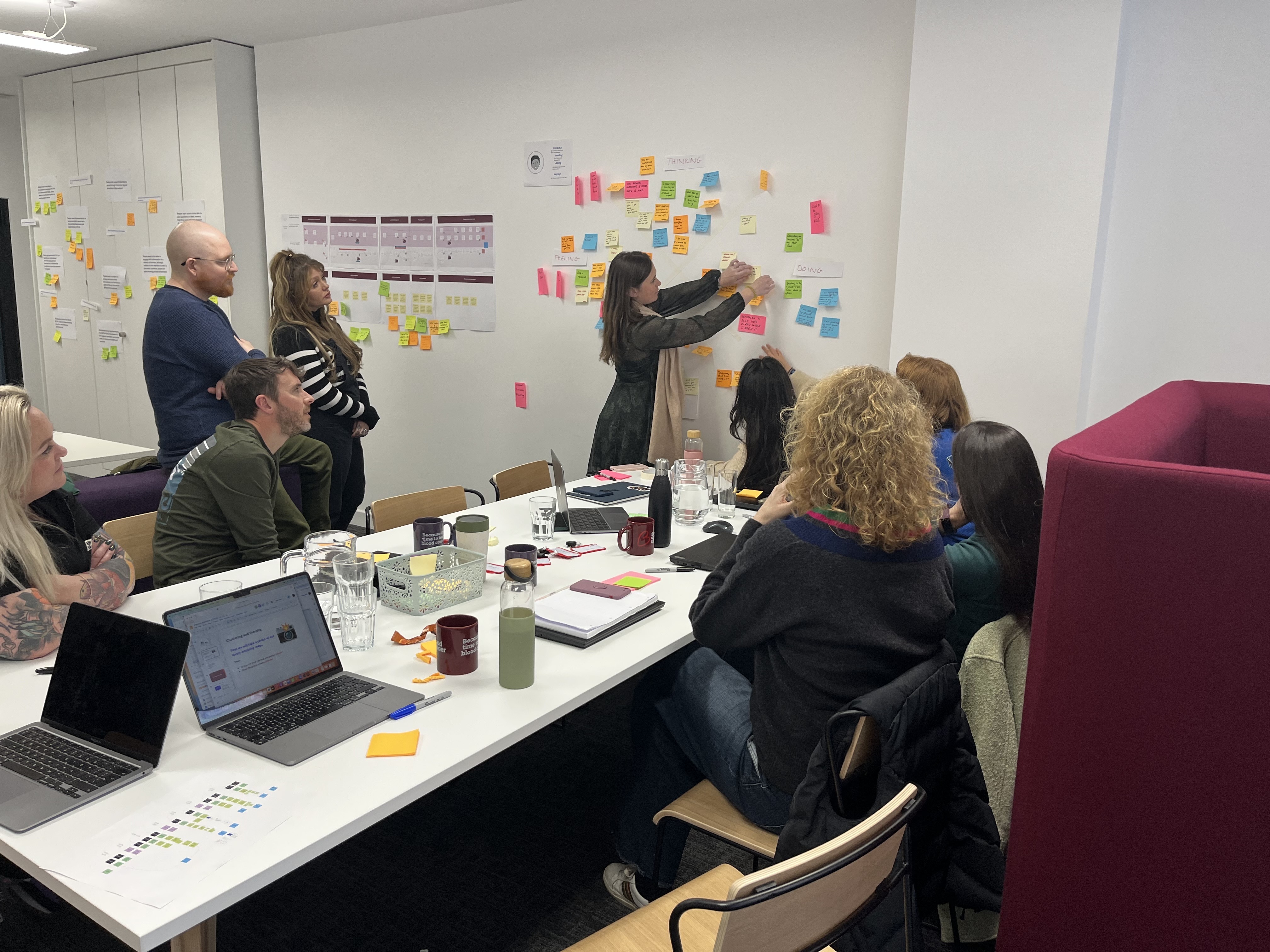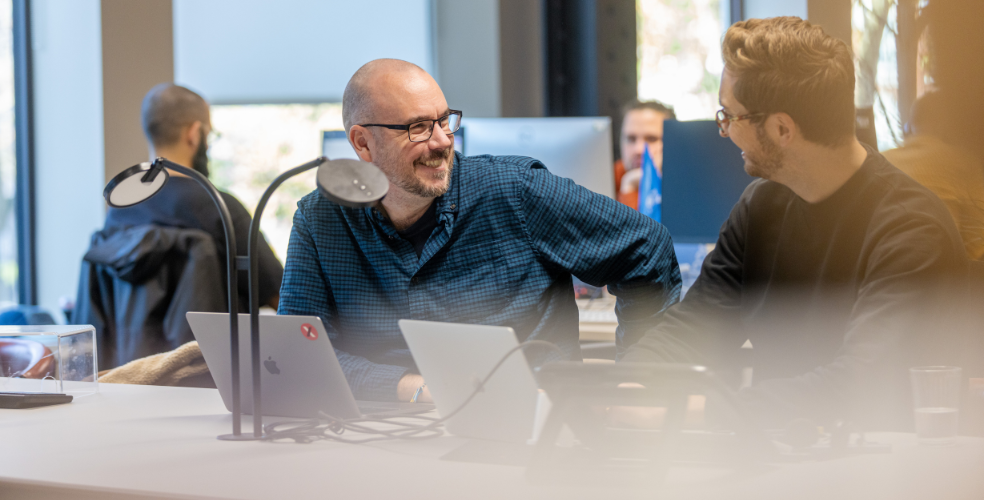Challenge
All local councils want their residents to thrive. Living in safe, welcoming communities and with effective local services that everyone can access. But achieving this demands a fundamental shift in how we design and run public services and shape the places that we live.
Local councils need more residents involved in nurturing neighbourhoods and designing services so that they meet their needs. This in turn, means that more council staff, councillors and colleagues in local partner organisations need to be able to proactively and skillfully shape ways for residents to participate in a way that treats people as active citizens rather than passive service users.
Manchester City Council (MCC) have a bold ambition to embed new ways of working across the Manchester system. So that a range of public services understand what good citizen engagement looks like and can draw on the right tools and support to achieve it.
In 2024, we came on board as a partner to help them understand and strengthen their current practice in ‘community power’ approaches.
Approach
Building a set of community power standards
In collaboration with the communities team at MCC, we began a period of exploration that included:
-
desk research to review a range of council policies, strategies, and any relevant documents related to community power
-
in-person observation at council committees and events involving both the community and voluntary sectors
-
in-depth one-to-one interviews with a range of council departments, including the city policy team and neighbourhood team
-
group workshops to make sense of and validate the findings together
We discussed where community power was recognised within the council and examined the barriers to its implementation. Starting conversations that aimed to create a lasting, participatory culture that empowers both council staff and community members.
The first draft of the standards was built together, based on this exploration. They are designed to be applied at an organisational or team level.
-
Vision and strategy
We understand why and how we are building community power. Our vision for community power is compelling and inspires action from citizens, communities and partner organisations. Our strategies bring this vision to life. -
Leadership
We are champions for community power. Senior leaders embody community power through their own behaviours and by encouraging or enabling colleagues to work more closely with local people and within places. This way of working is central to becoming a leader. -
Culture and mindset
We are people-oriented, pragmatic, open and collaborative. We are inclusive and work collaboratively. We prioritise building trust and relationships with people. We act quickly to solve problems and respond to ideas from communities. We are honest about what we can and can’t do. -
Skills and learning
We are building capabilities in community power.
We have the necessary knowledge and capabilities to effectively collaborate with citizens. We are learning from and with our partners. Citizens are helped by our expertise and training. -
Resources
We invest time and money and share assets to build community power.
We use staff time and funding to support and enable community power. Communities have maximum power over non-statutory budgets. Citizens are able to see more direct investment in the place where they live. -
Equality, diversity, inclusion, anti racism
We develop shared ambitions and priorities with diverse communities, and uplift the voices of those seldom heard. A diversity of communities and organisations are equipped to make demands, take meaningful action and create or provide solutions to inequalities. Historically marginalised communities access additional support for more equal outcomes. -
Data and insights
We gather and share knowledge to increase the power of citizens and communities. We gain deep insights through lived experience alongside quantitative data. We analyse evidence to understand the strengths and needs of communities with our partners, and work to align activities. -
Partnerships
We build deep connections and work in collaboration with communities.
We work in a joined-up, relational way with public, private, voluntary and community organisations. Our approach strengthens community relationships and achieves the best outcomes for citizens. -
Participation
We ensure citizens and communities have the power to shape the places and services they care about. Community and citizen involvement is coordinated, meaningful and sustained. Communities are actively given opportunities and responsibilities in decision-making, service design and delivery. Citizens can get involved in decisions that affect them and bring their ideas to life through a variety of accessible methods.
Testing the new standards in context
We then worked with four pioneer groups across the council to test how these standards might be applied in practice. The groups spanned professional neighbourhood teams, internal services, external partners, councillors, residents and voluntary sector organisations.
Participants were asked to consider how their current work related to the standards, and how the standards could be used to improve or deepen community participation in their specific context.
Like running neighbourhood participatory budgeting to support citizens in deciding how public money is spent in their area. Or increasing diversity in staff recruitment by including citizens in developing job descriptions, advising on outreach, or participating in interview panels. Or building an organisational strategy around reducing health inequalities with a panel of citizen advisors.
These conversations showed that:
-
the standards could be used by teams to think critically about their ways of working with residents and how to develop them in the future
-
there were pockets of good practice that could be shared more widely for others to learn from
-
there would be value in growing a community of practice for people to learn with and from each other
In recognition of the critical role of councillors as a bridge between local councils and their communities, we also hosted a conversation to explore how the role of councillors might shift along a spectrum of shared decision making with residents from informed, to consultative, participatory and self-determining. And what conditions make this type of decision sharing successful or not.
To scale awareness of and engagement with the new standards, we built and tested a self-assessment tool so that team leads and project leads can think critically about how they currently use community power approaches, and start a discussion with their teams about ways to increase or improve how they collaborate with MCC residents.
Impact
The ambition in Manchester is to continue to increase confidence and knowledge among council staff and partner organisations in engaging the public meaningfully, building a participatory culture where community members play a central role in decision-making, and embedding community power approaches across council departments beyond the neighbourhoods team.
"We know that people in Manchester want to be involved in shaping their neighbourhoods and the services they use. We’ve just completed an extensive consultation with over 10,000 responses to refresh the Our Manchester Strategy. Residents have made clear their ambition for people to be supported to participate, engage and influence decisions regarding their communities and neighbourhood."Shefali Kapoor
Director of Communities, Manchester City Council

Empowering communities: the impact of citizens' assemblies
We spoke to Ellen Jennings, Senior Workstream Coordinator at Barnet Council’s Sustainability Team, about the importance of citizens' assemblies in helping to address the climate emergency.
Read moreOur latest work
Transformation is for everyone. We love sharing our thoughts, approaches, learning and research all gained from the work we do.
-

-

Building real-time integration into an ICS
Read case study -

Transforming blood cancer support
Read case study -

Transforming data sharing across government
Read case study
